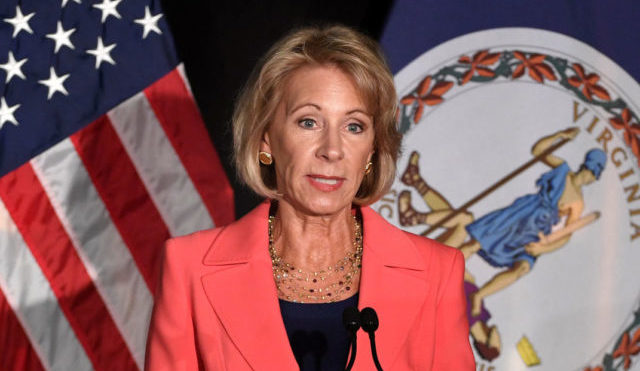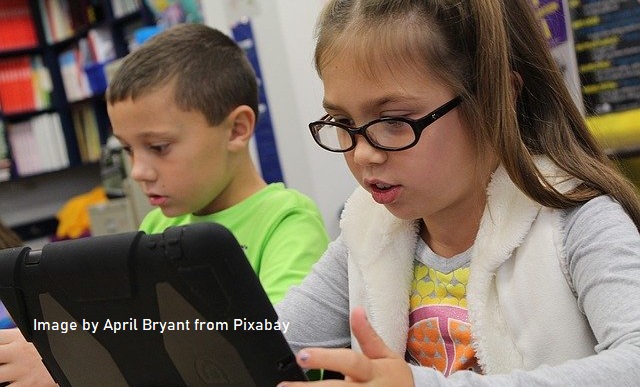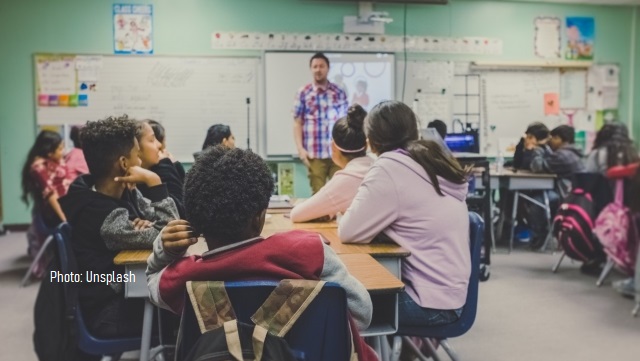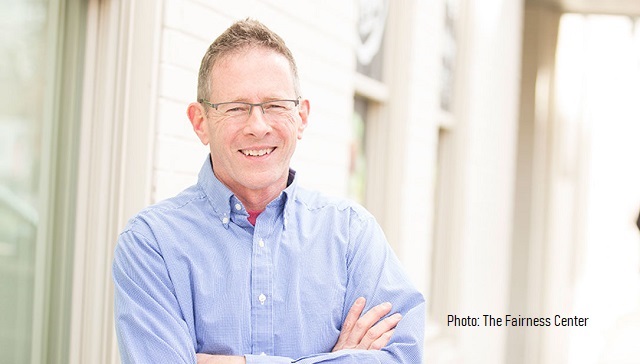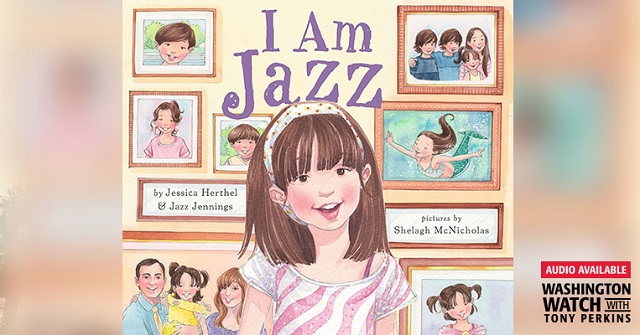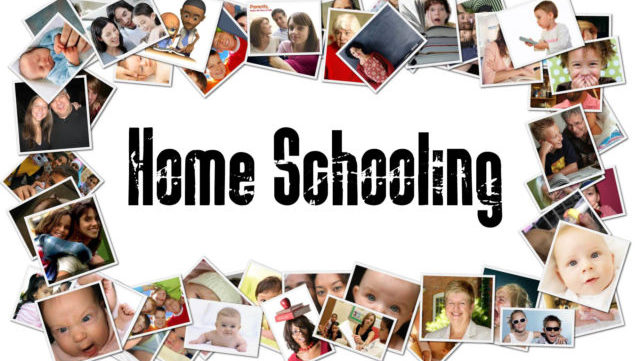
Choosing to homeschool your child is a big decision, but many Americans just had the choice made for them. Schools all over the country have closed their doors due to the coronavirus pandemic—with some states, such as Virginia, announcing that schools will remain closed through the end of the academic year.
Leigh Bortins, founder of Classical Conversations, a homeschooling curriculum focused on classical education, joins The Daily Signal Podcast to offer practical advice and resources to parents who suddenly find themselves overseeing their child’s education. Listen to the podcast below or read the lightly edited transcript.
We also cover these stories:
- President Donald Trump says he’d like to “reopen” the economy by Easter, despite the spread of COVID-19.
- Vice President Mike Pence says the White House isn’t considering a nationwide lockdown.
- The International Olympic Committee and Japan agree to postpone the 2020 Tokyo Olympics.
The Daily Signal Podcast is available on Ricochet, Apple Podcasts, Pippa, Google Play, or Stitcher. All of our podcasts can be found at DailySignal.com/podcasts. If you like what you hear, please leave a review. You can also leave us a message at 202-608-6205 or write us at letters@dailysignal.com. Enjoy the show!
In these trying times, we must turn to the greatest document in the history of the world to promise freedom and opportunity to its citizens for guidance. Find out more now >>
Virginia Allen: I am joined by Leigh Bortins, founder of the homeschool curriculum Classical Conversations. Leigh, thank you so much for being here.
Leigh Bortins: Thank you for having me. It’s very nice to get to speak with you, Virginia.
Allen: Yes, we’re all speaking from a distance right now, maintaining that social distancing. But right now, because of social distancing and the Coronavirus, so many parents are finding themselves homeschooling their children and they’re looking for support, they’re looking for resources. I want to pick your brain a little bit and find out what some of those resources are. But first, let’s just talk a little bit about why you chose to homeschool.
Bortins: I chose to homeschool … How much time do we have, you want the whole story or the short version?
Allen: A shorter version maybe for the sake of time.
Bortins: My husband’s 10 years older than I am and when we got married and then I got pregnant with my first born I saw a TV show about homeschooling and those folks struck me as quite weird and I knew I wanted to join them. We didn’t have a TV, I was walking through the mall and saw it on TV at “The Phil Donahue Show,” if anybody remembers that.
And then when I got home I told my husband about it and him being 10 years older, he had been very discouraged by students in our college program or at the University of Michigan getting our aerospace engineering degrees.
He just said, “I’m so happy to hear there’s this way to do this because there’s no way our kids were going to go to school if they’re going to be as unintelligent as you freshmen seem to be to me.”
So he was just relieved for the academic side of it and then eventually we both became Christians and, of course, we stopped wanting to emphasize having our children in college and instead said, “Let’s make sure that they’re in Christ.”
So now I would say we homeschool for the best of reasons so that we can constantly model our love for the Lord and hope that our children will do the same.
Allen: Yeah, I love that. That’s beautiful. But it’s one thing to say, “I want to homeschool my child.” It’s an entirely different thing to decide that you’re going to create a homeschool curriculum. Tell me a little bit about the reasoning behind Classical Conversations and what really drove you to create it.
Bortins: When our eldest, Robert, who’s now the CEO of Classical Conversations, was in middle school, … like so many other homeschooling parents, I thought, “Oh no, can I do high school?”
So I started reading more books on higher level academics and looking around for programs, speaking with our friends, and a lot of them were very nervous also about it.
Just after doing a lot of research, and again, working with my husband, we really came to the conclusion that we were still the best solution for our children. But one thing we really wanted to have was a classical education for them, which very much requires a community.
So my husband and I decided that we would once a week have people into the house, adults and children, and we would work together on rigorous academics that were hard to do on your own, not just because they were rigorous, but sometimes you want other people to do a Shakespeare play with or discuss a chemistry lab or you need debate partners.
So we came up with a curriculum where the families could do the majority of their work at home and then just get together once a week and polish it off and finish in community.
It’s kind of like a weekly PTA meeting for the parents, a weekly training for them to do better in classical Christian education. And, of course, the socialization, which has nothing to do with the children, it’s the mothers who all want to have friends, the kids will naturally.
So it just came out of a lot of different needs and within doing it in the first three years, we had 300 people on the waiting list to get into the program. So my husband quit his job and we worked with some of our friends and that’s kind of how the story all began.
Twenty years later, we’re in 20-some countries and in the United States alone we have over 120,000 children enrolled in our curriculum.
The greatest joy I have is to see how many homeschooling parents just dig in and really want to learn and are so glad for weekly support as well as recommendations and curating of the actual academics.
Allen: Obviously, right now, you all aren’t able to get together and do those larger group meetings. So is a lot of that taking place online or how are you continuing to maintain that connection that you mentioned being so vitally important?
Bortins: Right. A couple of ways, some of our communities are online temporarily for this end of year. But because we always homeschool within the parameters of safety, it’s not a big issue for us because we have a less than 12-to-1 … tutor to family ratio or to student ratio and so we’re in small groups anyways, most of the time.
Now, we do have programs that are in churches and much larger and so those have disband to personal homes, and if they can’t do that, then they do it online right now.
So we’re making do, as all homeschoolers do all the time, we just get the resources the Lord gives you and you just gratefully move forward and so that’s how we’re doing it.
Allen: Yeah, yeah. All right. Well, let’s get practical and talk about what were some of those challenges that you had when you first started homeschooling and how did you overcome them?
Bortins: I would say the one that we all have is, I have never had this day before with the children I have at the ages they are before. His mercies are new every morning for a reason because you don’t know what the day’s going to ever hold for you, and so you can react in fear or you can react in wonder.
During those middle school years where I was talking about where we were trying to explore what would we do with our high school students, we continued through in fear and trembling with the confidence the Lord would help us day by day. And, of course, after getting through your first child, and then your second, and then your third, and so on, you end up realizing that there really was nothing to be afraid of.
Most people I think quit homeschooling in the high school years because of the lack of confidence, not lack of ability. Because, remember, they’re still children and there’s so many good resources out there, parents are quite capable of homeschooling through the high school years.
So we just had to learn that because being the first generation of homeschoolers, I didn’t get to see that. So it’s hard to believe what you don’t see, but then, of course, as Christians, that’s what we’re called to do, is walk in faith and so our faith was strengthened through that. So, practically, it really is trusting the Lord even though that might sound like a platitude at this point.
Allen: Yeah. Let’s talk a little bit more about that because I know so many of our parents out there listening, they do have kids in [high school] that are now at home or even in middle school and they’re looking at the math assignments that they’re supposed to be doing or the science assignments and they’re thinking, “I do not remember this.” So, practically, how can they be helping their kids right now in subjects that they honestly don’t even remember how to do?
Bortins: You have a couple of different ways. If somebody is homeschooling right now because of a short-term reason with the virus, and most homeschoolers actually only homeschool for a short amount of time. They do it because they’re military, or a job loss, or they moved, or a child’s sick for the year, or something sets the majority of folks who homeschool.
So if people are listening to this thinking that all of us have this lifetime commitment like I do, that would not be true. Most homeschoolers are going to do it to get through … a bad situation or maybe a really delightful, great situation. They’ve been traveling, or dad’s home for the year working from home and they want more time with them.
A lot of people homeschool not because of academic reasons but just because of family reasons and here we are one more time having a lot of different family issues to deal with.
So there’s two groups, there’s the folks that are trying to get through this temporary situation and they tend to rely a lot on resources like we have at Classical Conversations. A lot of new people will begin with Classical Conversations also. And as people get more confident in what they’re doing, they start to be able to branch out and figure out a myriad of resources that are … available for homeschoolers.
For those that are just kind of jumping in, a resource I would turn you to for now to finish off this school year is one that we’ve put together called homeschoolingjourney.com. It’s a site where people can download what we call our survival kit and find all kinds of resources from our partners and more.
We’ve put together … a lot of things that are commercially viable that are now free for a short amount of time or highly discounted as well as YouTube videos. Then we have games and we have some of our own products that are for free.
We have one thing that a lot of people don’t know about is this service called Right Now Media, it’s like the Netflix for Christians and that’s free on our website, homeschoolingjourney.com as well as science activities.
There’s even a fitness program. … [If you] can’t get outside, which, it is spring, I would think you’d go outside, but if you want to stay inside and get your kids moving, we even have a fitness program on there.
So there’s a lot of things that we’re doing and I know other homeschooling resources are doing the same. Just trying to pull together things people can do to help their children and stay active for the next three to eight weeks or maybe even finish off the school year.
Of course, what we’re hoping for is people will see those resources and maybe consider homeschooling permanently or for at least another year and then, of course, we would ask them to look at classicalconversations.com.
Allen: That’s so great. That’s such a practical resource to have, That kind of emergency kit package that parents can literally go to right now and start utilizing.
Bortins: Yeah. Because we’re not the only one, right? A lot of people don’t know that there’s thousands of homeschoolers who have curriculum and materials that are for people, they can use it any time and, of course, there’s YouTube. They’ve had a lot of ads lately about how you can go on YouTube and learn anything, so people aren’t without resources.
But all of these I’m talking about right now are online resources, they really are our weakest resources because when you’re working with children, your best resource is a pat on the back and a smile or a word of encouragement. Looking them in the eye and helping them consider why they’re struggling or what they’re interested in or … what kind of homework help they might need.
So we really believe that the idea of social distancing is probably not the best word to describe what’s going on now, we are all social creatures who need a hug. So in this time when we’re trying to not hug our neighbor because we’re worried about passing on various viruses, really a better word is physical distancing because you and I right now are being social together, aren’t we?
Allen: Correct. Yeah, absolutely.
Bortins: Yes. One of the things that we just love about homeschooling is five or six of us can flop on a couch and just read a book together. In fact, we have a new series called “New World Echoes” and it’s a collection of stories that are very short read alouds that are appropriate for the entire family, whether you have a 17 year old or a 7-year-old, they’ll just lay on the couch or flop on the floor and read together.
If you’re able to throw a blanket outside and have a picnic, it would be appropriate to bring them too because they’re small books you can hold in your hand. I really would encourage parents to use as little online resources as possible right now and to just spend time with their children talking face to face and getting to know them in a different way than they had before.
Allen: But what about the parents who are listening and thinking, “Oh, I would love to do that, but I have a full-time job that I’m trying to do online right now”? About how much time should parents who do have full-time jobs and are working online be building into their schedules in order to keep educating their children and making sure that they’re still continuing to learn and get the attention that they need?
Bortins: Yeah. I know one time a grandfather told me he wished his daughter would homeschool, but since she had four children and they’re six subjects, he didn’t see how she could homeschool 24 hours a day. I just kind of looked at him and said, “Nobody does that.”
In general, I think homeschoolers through about eighth grade might spend three hours, five days a week at the most where it’s kind of a sit-down academic situation.
And then once your children are in high school, if you include those three hours, plus, they have, of course, a much more extensive reading time—which a lot of times they’ll do before they get out of bed in the morning and as they’re going to sleep at night. I mean, it’s really rare to have a six-hour day of academics, no matter how many children you have.
One thing homeschooling teaches you to do is to be efficient and picking the best things to do and not being robbed by somebody else’s lists, but being able to look at your children and say, “These are the things that we want to do together.” And make them your priority.
So when it comes to time, this is a quick schedule just to give someone who maybe has to work and still has the kids at home, get up in the morning and do your reading or a Bible study and devotion together and have breakfast and then go off to do what you need to do for the day.
At lunchtime, break and do a math or science lesson, go outside and look at the plants and maybe do a little bit of journaling and writing. Then when you go to bed in the evening, I suggest that you, again, you have like what they used to call the children’s hour and just spend an hour playing board games and doing read alouds, and if you want, watch a movie … something that’s for the whole family.
But break it up into segments that fit into your day and don’t feel like it’s something where you just sit down and work for three hours straight or six hours straight, whatever you think you would need to do.
I can’t say that I’ve ever been in a room doing more than probably two hours straight of academics with my four children. But that doesn’t mean that in their high school years there weren’t days where we did spend five or six hours, but it wasn’t every day by any means.
One of the things that we’ve become accustomed to with the public school system and institutional schools is just having 50 minutes with five or six different people each day. That’s just not how homeschooling works. Mom or dad, whoever’s doing the educating, just spends time with the whole family.
Studies have shown that the average child only gets about 30 minutes of academic instruction in a classroom situation that’s personal. So you really can do it and I suggested everyone find a friend who homeschools and just learn more about what it’s really like rather than probably what you imagine it’s like.
There’s no reason to bring school home, you actually can just have a family life together. And just think about it, if you love your children and there was no such thing as any school, wouldn’t you still teach them basic skills and how to read and do math … how to serve their community and how to take care of their home?
The things that you just do in your average life and then like now helping with homework after school take up about the same amount of time we homeschoolers devote to academics.
The better part of our day is spent with our children doing things we just all enjoy doing. So we travel more, and we have field trips more, and we get together with friends more, and we can work at the community centers and service with seniors and things like that because service is a big part of homeschooling with children.
A lot of people are so worried about the math and science where there’s so much help like we offer and YouTube offers, when really what we’re trying to do is teach our children to be good citizens and have a constant civics lesson of how to behave appropriately in any situation you find yourself in. There’s a lot more to it than I think people think of and it’s a lot easier than they think.
Allen: Yeah. No, that’s really interesting to hear. Because I’m sort of thinking, all right, if you’re a parent who has maybe four kids, they’re all different ages, you’re saying you don’t have to kind of have these individual specific full days worth of work for each child. You maybe have like a little bit of time for each of giving them their own assignments, but then you’re able to actually do a lot together and have more group activities even despite the age differences.
Bortins: If you think about it, they said, “Reading, writing, and arithmetic forever” for really good reasons. You need a child on your lap when you’re teaching them phonics, they need some individual time then, you need your middle schoolers sitting next to you while they’re struggling with difficult material, which is the same as taking them through phonics when they were younger.
So there’s some personal time that’s needed and then there’s quiet time that’s needed. Each of your children should be able to go off and on their own, whether it’s playing Legos or writing an essay, they shouldn’t have to have mom or dad next to them all the time.
On the other hand, some of my favorite things to do was write papers with my children or build Lego castles with them, right? As a parent, it was just my job to assess their needs and our family’s needs and each day do my best to work it out because, again, His mercies are new every morning and who knows if the dishwasher’s going to leak that day or someone’s going to come down with the flu, whatever it is, you just have to learn to roll with the punches.
For those of us who’ve been regulated our whole lives, we’d go to school from day care through college and then we’re at work, … sometimes it’s really difficult to retrench and just say, “Hey, I’m in charge for a little bit. What is it we want to do as a family?”
Allen: Oh, this is so good, I feel like it’s just kind of taking the pressure off, this is great. But are there maybe some do’s and don’ts of homeschooling that you can offer us? Just things that you’ve learned over the year through trial and error.
Bortins: The biggest don’t is to not worry that you’re not doing enough. Because here’s the thing, none of us are doing enough and all of us are doing too much and it depends on what field or area you’re talking about. Not one of us is perfect, so we’re going to have our strengths and our weaknesses.
On those days where you just feel like you are so weak in a certain area, just stop and don’t say, “I failed” or “I quit” or “I’m a bad mom.” Stop and say, “You know what? I might not have done this so well, but I did do this other thing really well and the children are going to get a lot of different experiences from me as an adult and all of them have some sort of value.”
So to not make light of the things that maybe seem unschoolish, they may be where the best teachable moments occur or where your kids are really listening.
So the one thing that I shared a little bit about … earlier was to learn to not be afraid and to just be really joyful and grateful. And then when you just want to kick the kids out of the house or put your husband’s face in the mud, whatever it is, you just have to say to yourself, “OK, this too shall pass and we’re going to start over tomorrow and we’ll have a great day.”
I used to, at the end of the day when I had all four of them home, if I knew I’d opened up with Bible reading with them, did a math lesson, and then read to them at night, my kids were well-educated, that was enough.
Allen: Let’s go back and talk a little bit more about Classical Conversations. You all have come a long way since you first started in the early 2000s, what do you think really led to that success? What was kind of that switch that just people were so hungry and really wanted to learn more and find out more about Classical Conversations that has allowed it to do so well?
Bortins: It surprised me, the answer to that question. About six, seven years into it, I realized that a high percentage of our families were military and that’s what was making us grow because once the families were bought into homeschooling and classical education and saw how easy and approachable our program was—they, of course, get deployed every three years somewhere else—then their attitude was like, “Well, there’s not a CCD here, so I’ll start one and I’ll get together with my military friends there.”
So, of course, that’s why we’re in bases all across the world. And then, of course, the families who’ve started the bases across the world have started to find natural citizens in those countries to take over for them. I don’t know the exact numbers, but I wouldn’t be surprised if … a third of our families are in the military.
So think what we do for them, and what we do for them they recognize is important. But people need to remember one-third of children move year-round, no matter what situation their families are in, we don’t really have community schools anymore because of all the moving that occurs.
So by being in Classical Conversations, the military families had two things. They had, one, they knew exactly what the curriculum was that they were going to be doing in the following week, no matter how far away they moved. So that was a strain off the parent trying to decide what to do about curriculum.
Then the second one was that they instantly had friends for their children when they moved because of our small communities that we needed.
Again, the moms want the friends as much as the children do. So that’s why they kept starting everywhere because they wanted to have [the] academic community as well as the military community that they were in and enjoying the travel opportunities they had being military families. That was really quite a surprise to me, and now I’m super grateful to all of them.
Allen: Yeah. Well, it’s just incredible to see the success that you have had. I mean, you’ve been in this movement for such a long time. How do you think that it’s changing as we’re hitting a second generation? For instance, there’s now homeschool kids, they homeschooled themselves, their parents homeschooled them, and now they’re turning around and homeschooling their own children. So how has the movement really changed over the years?
Bortins: Yeah, probably my happiest stories are how many grandmothers, mothers, and their children are in Classical Conversations. In other words, I got three generations all working on the material.
So think of the connectivity that we have in the sense of not just laterally with other families, the legacy with the families that stay generation after generation. That’s been really neat to see happen.
For those of you that aren’t aware, we’ve been around for 20-some years now and so if folks came in, you don’t have to start at kindergarten, right? People might have started at high school and been with us for four years and then got married a few years later. So that’s why we’re able to do that in a single generation. That’s just been fun to see.
The thing that I would say would be different is, it’s almost a whole ‘nother conversation. My eldest two children who are in their 30s had a more similar education to my grandmother than … compared to their two brothers.
What I mean is this, they didn’t have technology, the internet was not something in our house, we didn’t have computers when they were going through school. So they learned [with] pencils and paper and books and then going outside and playing and the various things that my grandma and my mom and myself all did.
Versus the second two, we have a 10-year gap between our two sets of kids. The second two were very computer literate and expected a lot of things to be done quickly and didn’t have necessarily the same level of patience as the older two because things were pretty snappy once you’re in the computer age.
So helping them deal with the fact that they don’t always get to have electricity and technology and the things they see in front of them, that it’s important to be outside and to be playing, and writing your own stories and reading books with something hard in your hand that’s not a Kindle was a battle for us, just like it is for all parents—trying to get the Nintendo off and determining whether you’re going to have a TV in your household or not.
I got sort of both worlds there, one where it was kind of easy to homeschool because all families were used to playing together and working together to the place where now everybody can be in their own little silo and not even know what their siblings doing. So it’s something to overcome.
Allen: We want to make sure that all of our parents listening know how they can find out more about Classical Conversations and start utilizing those resources today, so where can they go?
Bortins: Go, again, if you’re a short-term homeschooler who’s just looking into all this, go to homeschoolingjourney.com, and that’s where we have our survival kit. And if those kinds of items interest you, go on to classicalconversations.com and you’ll see the whole universe of what we offer for kindergarten through 12th grade.
We sell books and curriculum as well as information on the communities and the philosophy.
We are a Christian company and so you’ll see things like what we believe in, our statement of faith, and anybody’s welcome to participate in our curriculum, so we encourage everyone to look at it.
I wanted to let you know that we are looking to make a really big announcement on March 28th. We are going to be offering some new services and I’m not allowed to tell you what they are, but I want our listeners to go [on] our website on that day, I’m pretty excited.
Classical Conversations is about to change the face of homeschooling again, and it’s not what any of you would think of. So please go look at it.
Allen: All right, great. That’s Saturday. We’ll mark the calendar. Leigh, thank you so much for your time. We really appreciate it.
Bortins: Thank you, Virginia. I hope that I was helpful and I pray blessings on everybody and that they will just be healthier and wiser than they ever knew possible when we come up the other side of this.
Allen: Yes, I agree and I echo that. Thank you.
Bortins: You’re so welcome.
COLUMN BY
Virginia Allen is a news producer for The Daily Signal. She is the co-host of The Daily Signal Podcast and Problematic Women. Send an email to Virginia. Twitter: .
RELATED ARTICLES:
Conservative, Not Liberal, Cities Are Ending the White-Black Achievement Gap in Education
25 screen-free educational activities for kids
My children finished their schoolwork. Now what?
A Note for our Readers:
This is a critical year in the history of our country. With the country polarized and divided on a number of issues and with roughly half of the country clamoring for increased government control—over health care, socialism, increased regulations, and open borders—we must turn to America’s founding for the answers on how best to proceed into the future.
The Heritage Foundation has compiled input from more than 100 constitutional scholars and legal experts into the country’s most thorough and compelling review of the freedoms promised to us within the United States Constitution into a free digital guide called Heritage’s Guide to the Constitution.
They’re making this guide available to all readers of The Daily Signal for free today!
EDITORS NOTE: This Daily Signal column is republished with permission. © All rights reserved.
